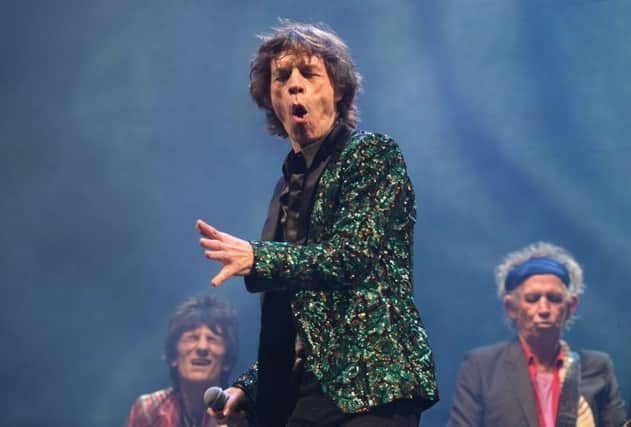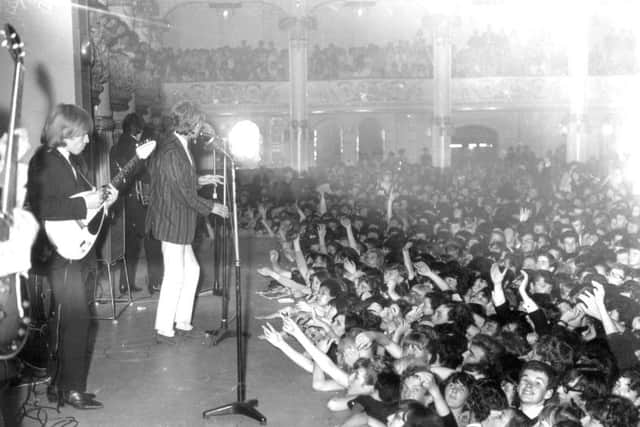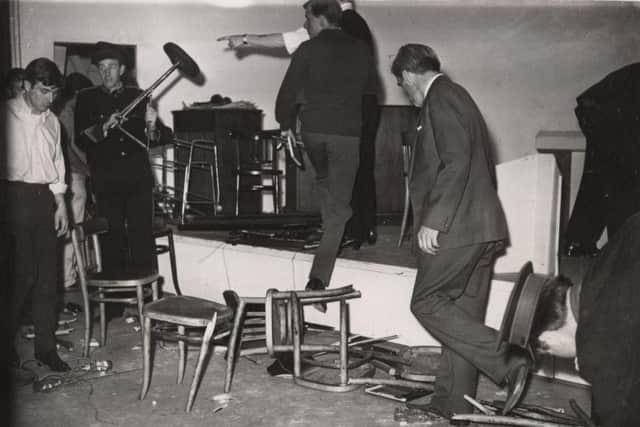The Rolling Stones, the Glasgow Fair, and a riot in Blackpool


They were pioneers of large-scale stadium concerts which promise a safe and ordered environment for fans and a healthy profit margin for promoters and performers alike.
It’s difficult to imagine the sense of danger that once followed the band around in the mid-1960s. Their early manager, Andrew Loog Oldham, intuitively sensed there was a market for the ‘anti-Beatles’ - no matching suits, no big smiles for the cameras.
Advertisement
Hide AdBut not all of the Stones’ bad boys image was put on. There would be plenty of real life instances to build that reputation for them.


One of the most notorious occurred in Blackpool on July 24, 1964. The English seaside resort back then was still a leading holiday destination. It was, and to a lesser extent still is, a particular favourite with those from the west coast of Scotland.
The Stones were no strangers to north of the Border by the time they arrived to play the Empress Ballroom, one of Blackpool’s best-known venues. The fact their show would be full of holidaying Scots would not have unduly troubled them.
Yet by the end of the night they would be forced to flee the town with police assistance, their equipment left behind in pieces. The Blackpool authorities would declare they never wanted to see them again. So what went wrong?
Timing in music is everything. The Stones rocked up on what was the last night of the Glasgow Fair, the traditional holiday that saw the city’s industries shut up shop for a fortnight. Today, the Fair is little more than a fading memory for older Glaswegians. But in 1964, it offered a welcome respite to thousands of workers - with Blackpool top of their list of getaways.


Ian Stewart, the Fife-born keyboardist, was the Stones’ effective tour manager at the time of the Blackpool gig. He would later recall the events of that night in bitter detail to American journalist Stanley Booth, whose 1985 book, The True Adventures of the Rolling Stones, is considered one of the definitive accounts of the group’s 1960s peak.
Advertisement
Hide AdStewart was a co-founder of the Stones in 1962 only to be later told his appearance did not fit their image. He would serve as their roadie and a regular guest performer until his death in 1985. The Scot told Booth they had no idea their Blackpool show was booked for the last night of the Glasgow Fair.
“Glasgow is the roughest city in the world,” Stewart boldy claimed. “They’ll thump anybody, these people, they’ll take on the U.S. Marines, anybody, put ‘em away without any difficulty at all.
Advertisement
Hide Ad“In Glasgow all the factories and all the construction companies shut down for the same fortnight of the year. This is what’s called the Glasgow Fair.
“One of their pet places is Blackpool. A lot of them have run out of money by the end of the fortnight, but those with money spend all of it on the last night on drink. Anybody who hasn’t any money, they buy drinks for. Once they’re outside of Glasgow, they all stick together - and if one guy has a go at a bloke from Glasgow, then they all jump him.
“So, unsuspecting we agree to do this dance at the Empress Ballroom, which holds about six thousand people. We get into town, and it’s absolutely full of these ravers from Glasgow, and I thought, oh, this should be fun. It’s the last night, and so they all, or as many as possible, crowd into the Empress Ballroom.”
Stewart continued: “Another thing about these people in Glasgow, they won’t normally just walk up to a guy and hit him. They need a spark - you got to detonate them. I think this kept them off the stage, ‘cause they could have come up anytime they felt like it. Some of the guys in the crowd were booing - Keith can’t stand being booed, he was saying ‘Aw f*** you’ to them and they could hear him.
“There was one guy right at the front, he was a bit taller than the rest, and he spat at Keith, and Keith just kicked him in the head. And that’s it. Good night. The hall just erupted. I’m surprised they didn’t get hold of Keith’s leg and pull him off the stage.
“Keith still thought he was God and that he could kick one of these guys and get away with it, but I was next to him - the other guys already turned, realising they’re gonna have to get off the stage - I just pushed him, said: ‘For f***’s sake get out of here while you’re still alive’ and I went off as well.”
Advertisement
Hide AdThe Stones’ equipment - from drums to speakers - was left on the stage and destroyed in the ensuring chaos. The band would later claim in a press interview that it was the most sickening night of their lives.
The Empress Ballroom was left badly damaged, with fans smashing two chandeliers, tearing up seats and breaking a Steinway grand piano. Two people were hospitalised and around 50 treated for minor injuries.
Advertisement
Hide AdThe authorities in Blackpool were severely unimpressed. On police advice, the local council banned the Rolling Stones from performing in the town again.
The ban would only be lifted in 2008. Speaking at the time, Peter Callow, the leader of Blackpool Council, said: “From what I hear, some sections of the crowd were outraged at the performance – they found it suggestive. Nowadays it would probably seem very normal, but back then the Rolling Stones were very new to the scene and it wasn’t something the fans were used to. A lot of people got very wound up. The crowd were hysterical and they went wild and trashed our world famous ballroom.”
More than 50 years on from that infamous night on the Lancashire coast, fans in Blackpool are still waiting for the Rolling Stones to return.